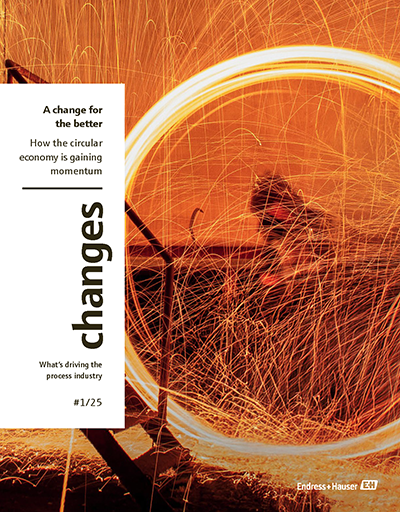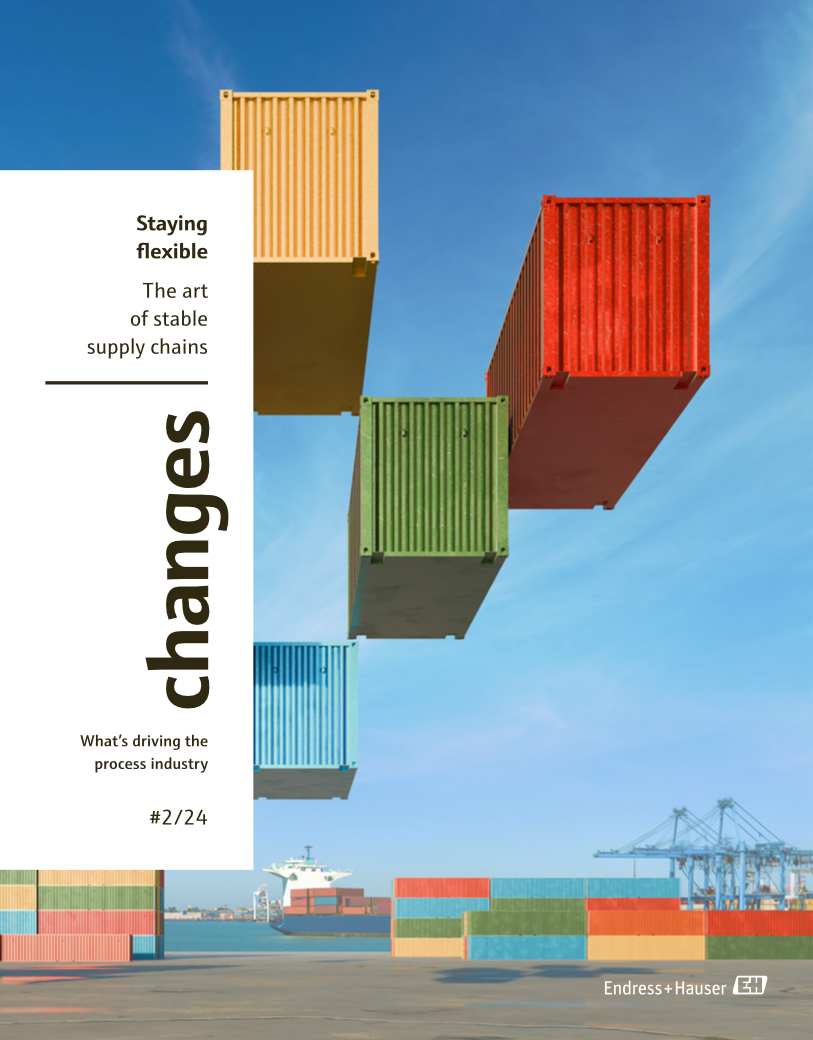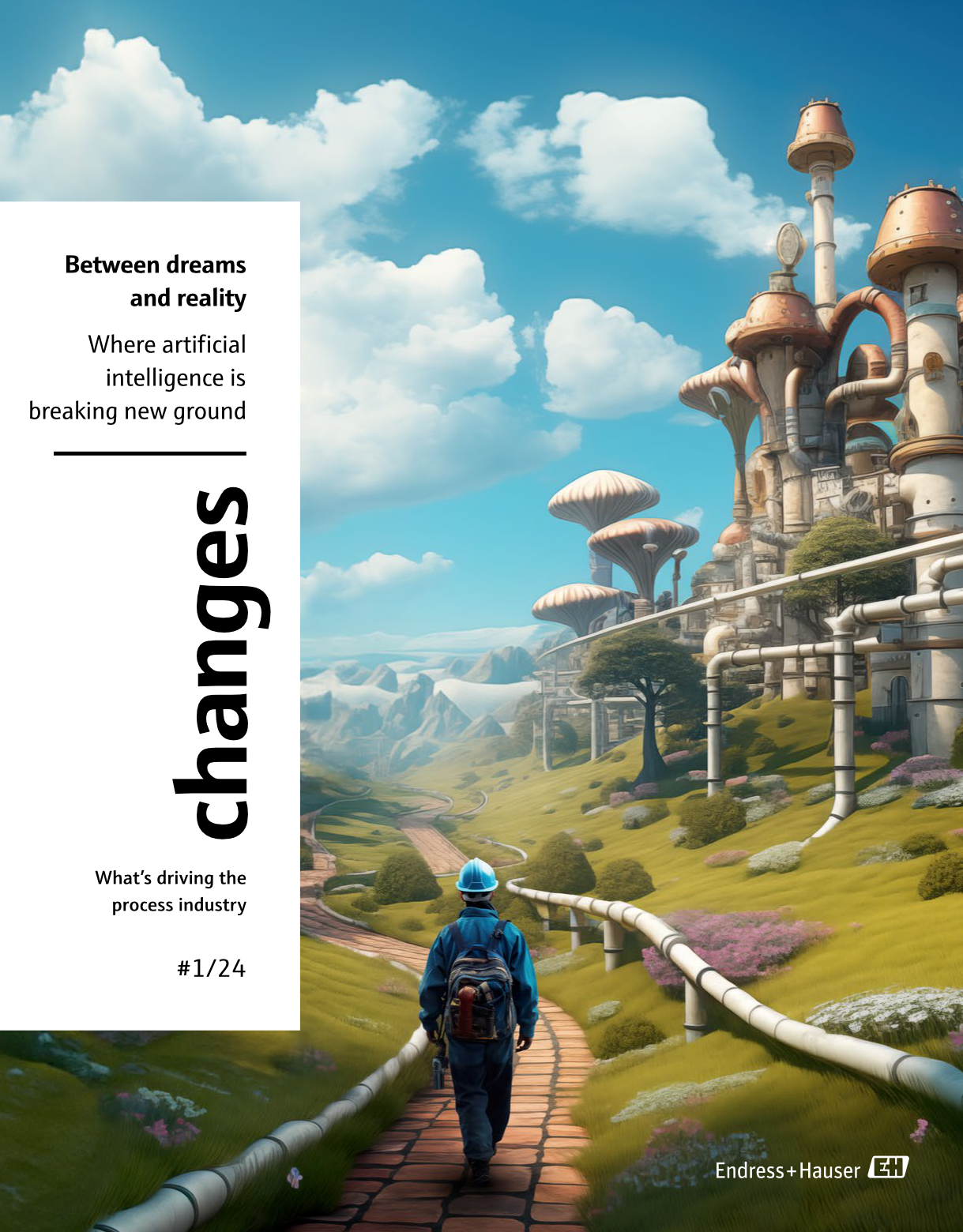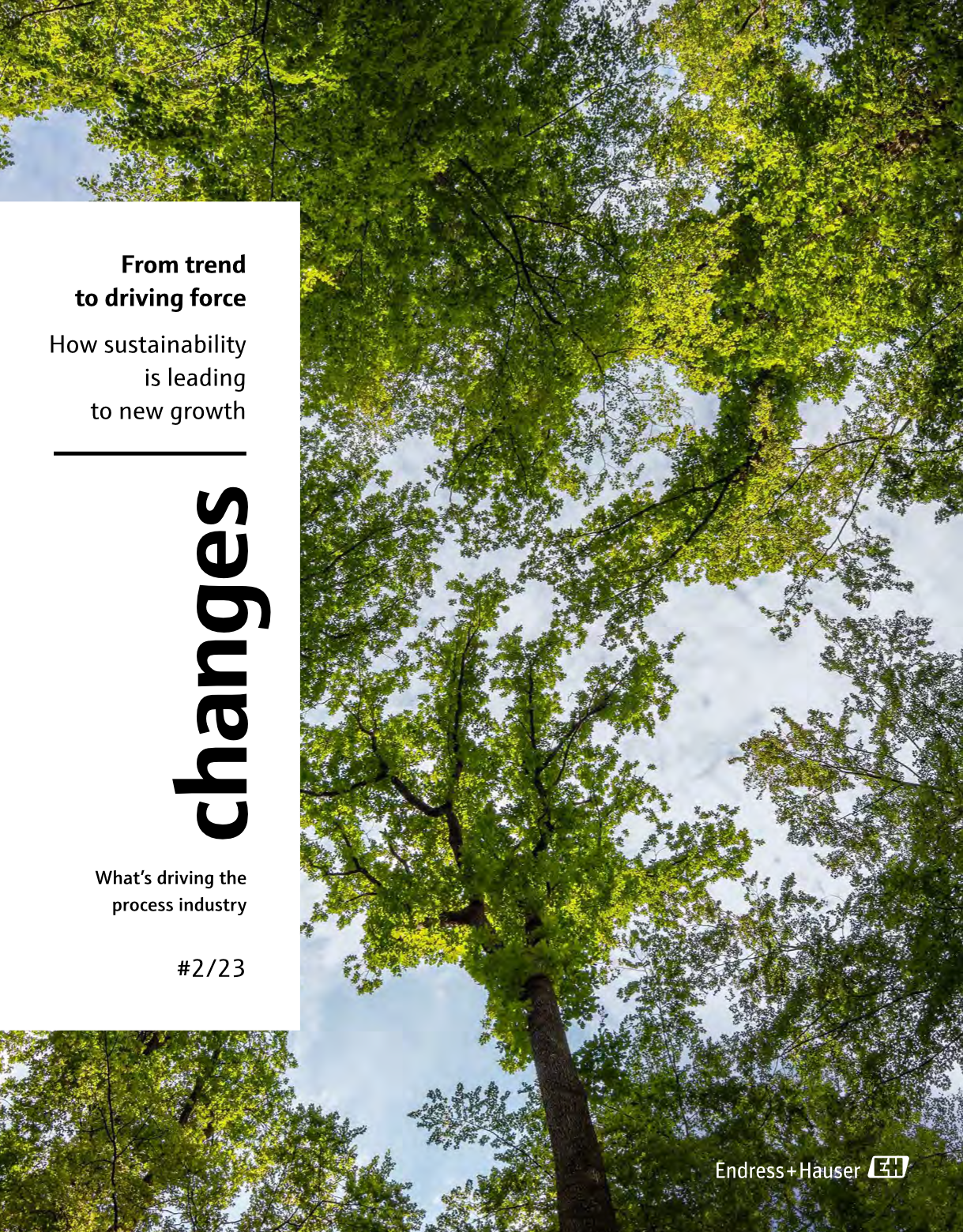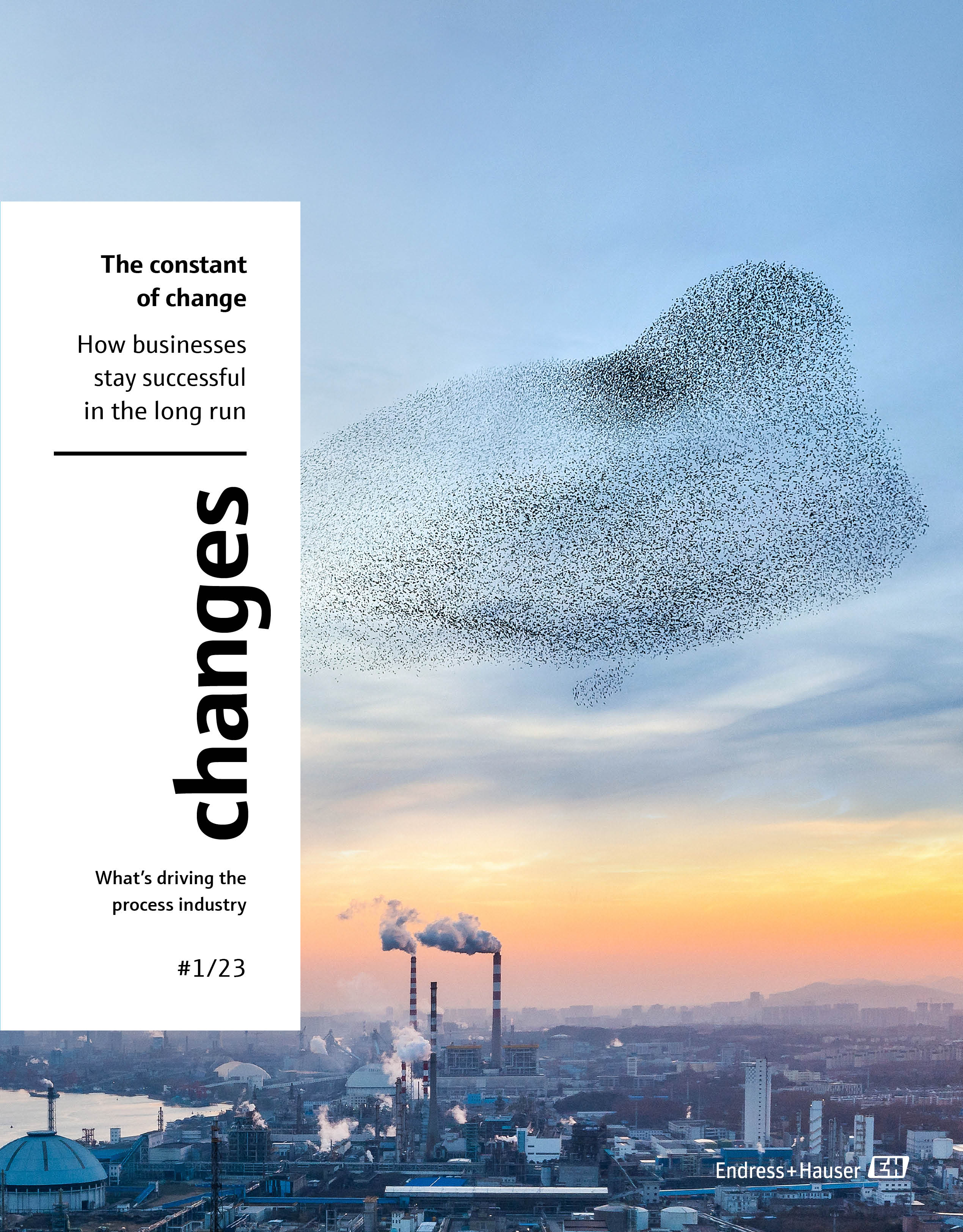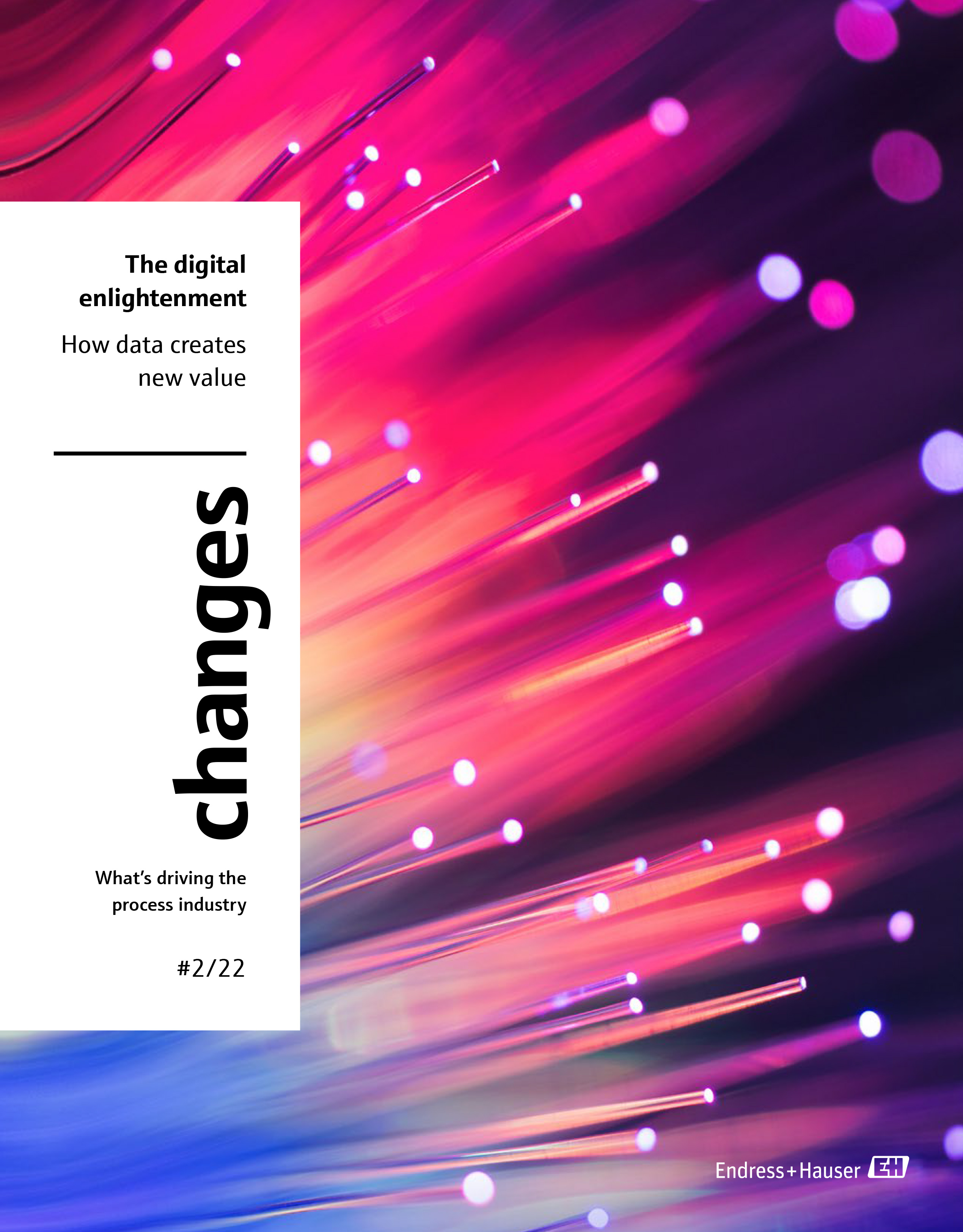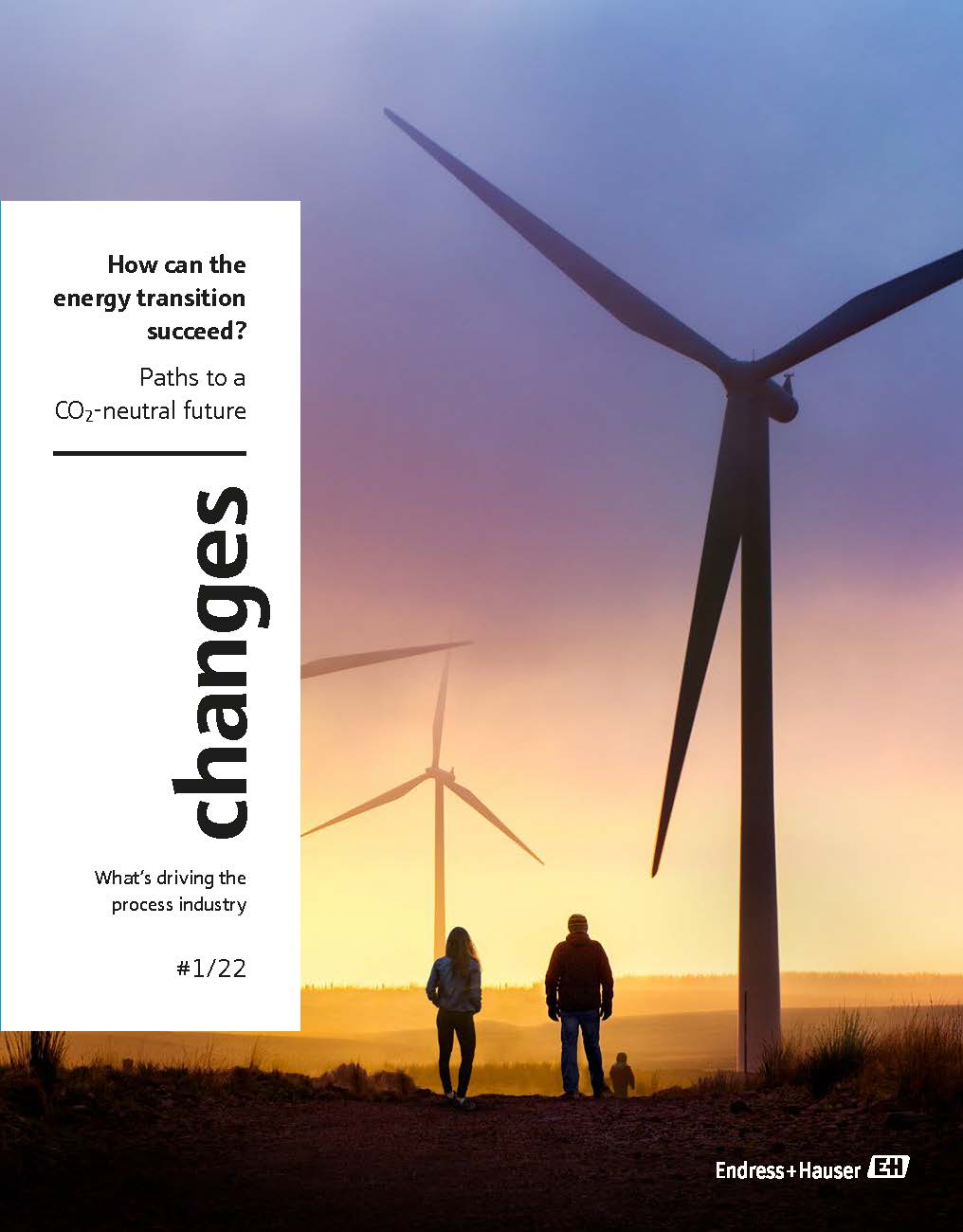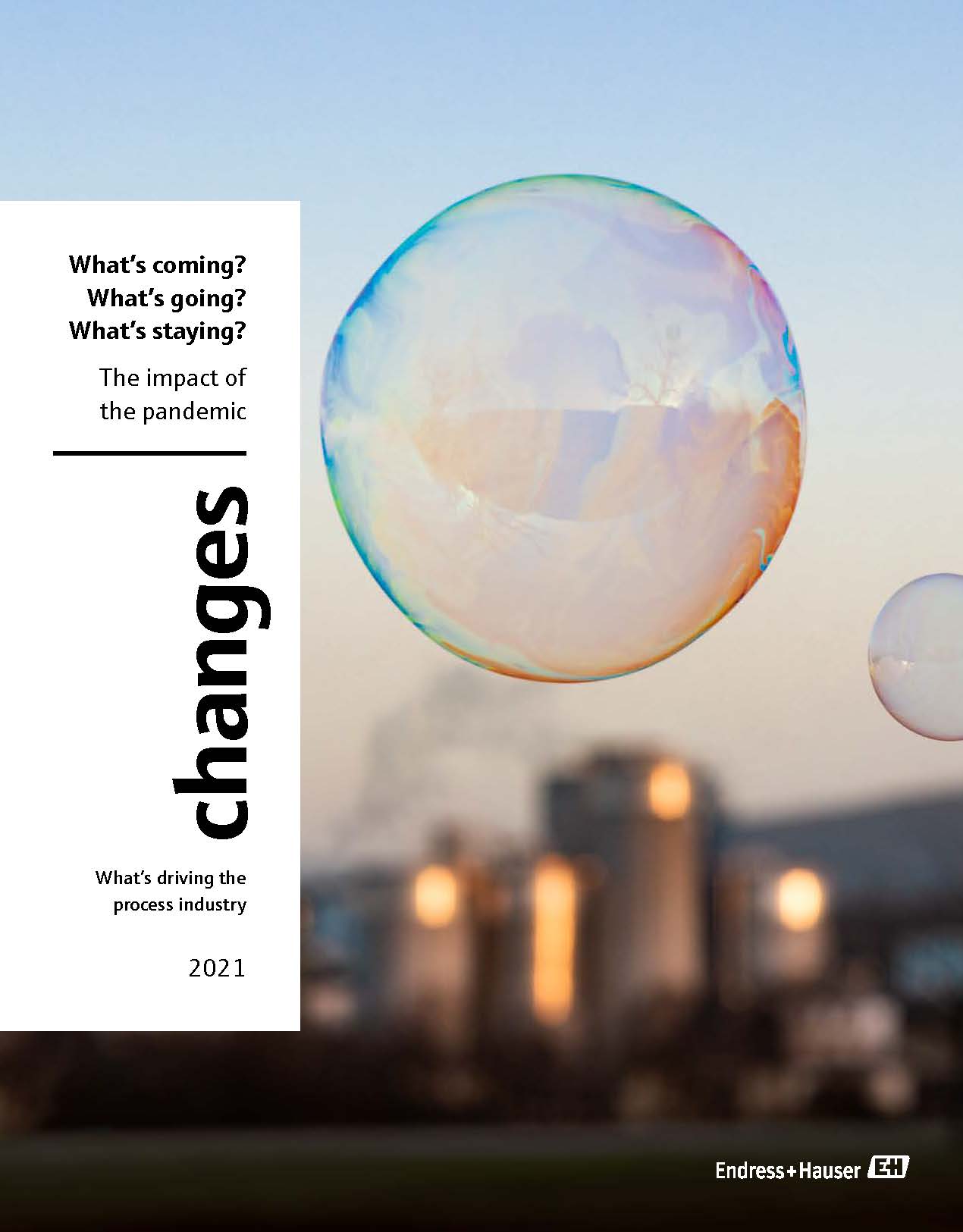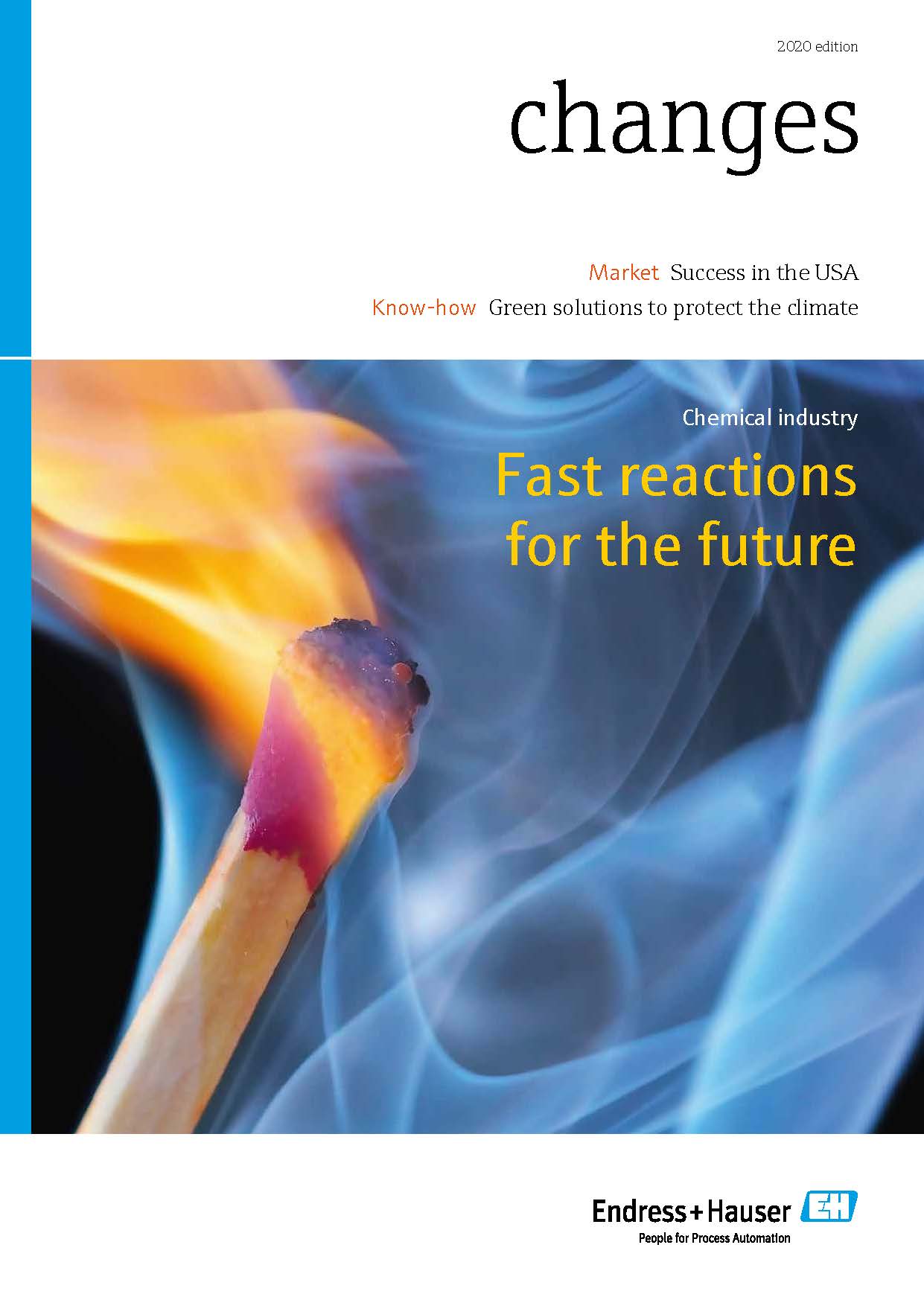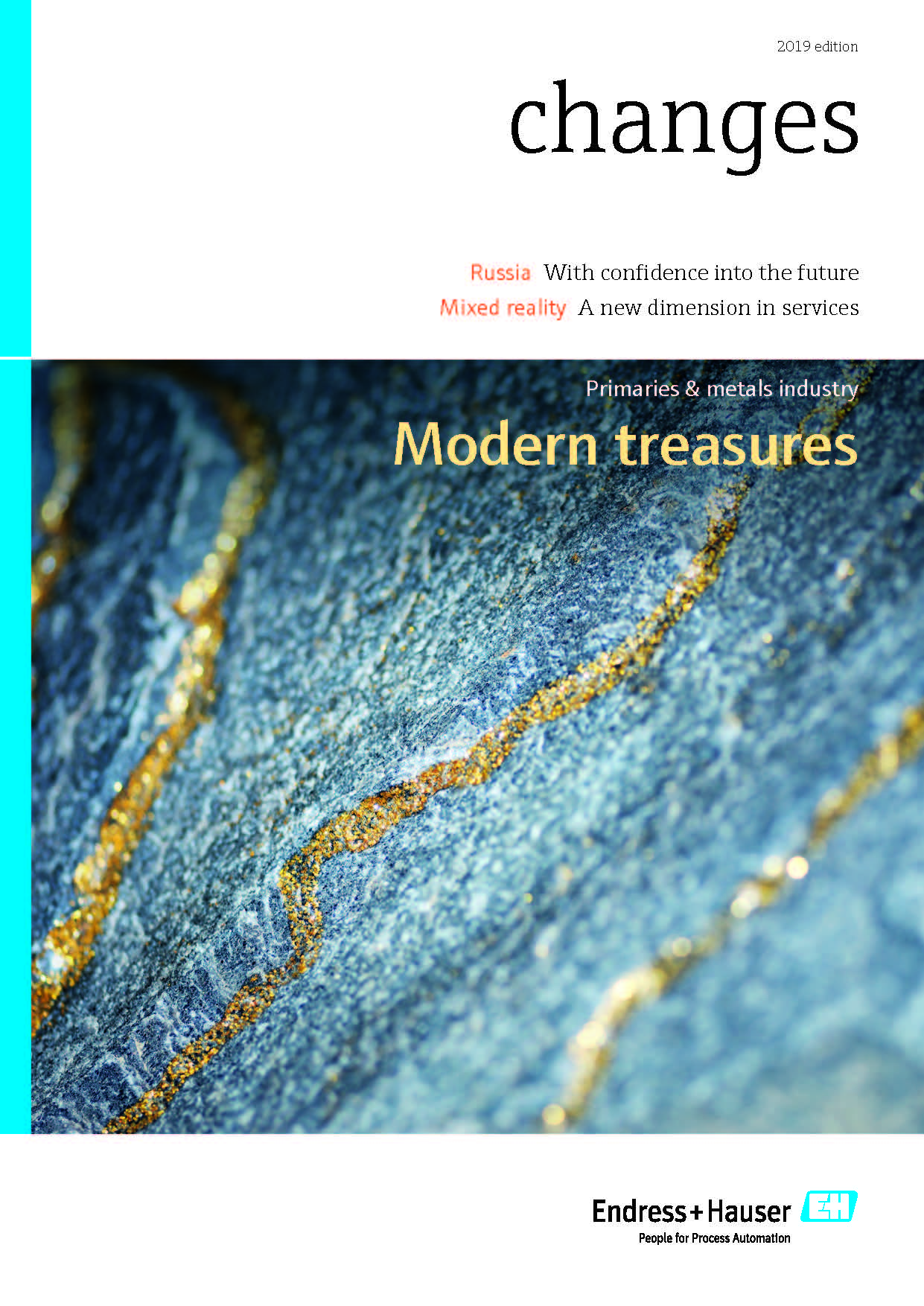Focusing on the essentials
Doing everything all at once is impossible, and that’s the case with sustainability. So in its drive to become an even better company – environmentally, socially, ethically – Endress+Hauser focuses on the things that have the greatest effect.

The things that matter
Endress+Hauser is a family business that aims to operate sustainably. This means combining commercial success with environmental and social responsibility. To be certain of continuing to set the right priorities, Endress+Hauser has now conducted a double materiality assessment together with an independent consulting firm. This analysis identified nine sustainability topics of particular relevance – either because Endress+Hauser has major influence on them, or because they matter greatly to the company’s success. “These topics will form the basis for the direction of our sustainability strategy and our future sustainability reporting,” says Julia Schempp, the Group’s corporate sustainability officer.
For the analysis, various stakeholder groups rated 37 topics relating to the environment, social affairs and company management. Corporate culture, where business ethics are deeply rooted, was rated as the most important topic for Endress+Hauser. Combating climate change came in close second. In 2023, Endress+Hauser joined the Science Based Targets initiative with the objective of cutting greenhouse gas emissions to net zero by 2050. With its process automation expertise, Endress+Hauser also supports the sustainable transformation of the process industry.
It follows that energy management, handling of hazardous substances and use of resources in the circular economy were also considered crucial environmental factors. In social affairs, key topics are working conditions, diversity and human rights of the Group’s employees. High standards in product safety and thus customers’ personal safety are also major points.
20 years
Sustainability has been one of the Endress+Hauser brand values for two decades.
2050
The year by which Endress+Hauser aims to have reduced its CO₂ emissions to net zero
9 core topics
will guide Endress+Hauser’s global sustainability strategy in the future
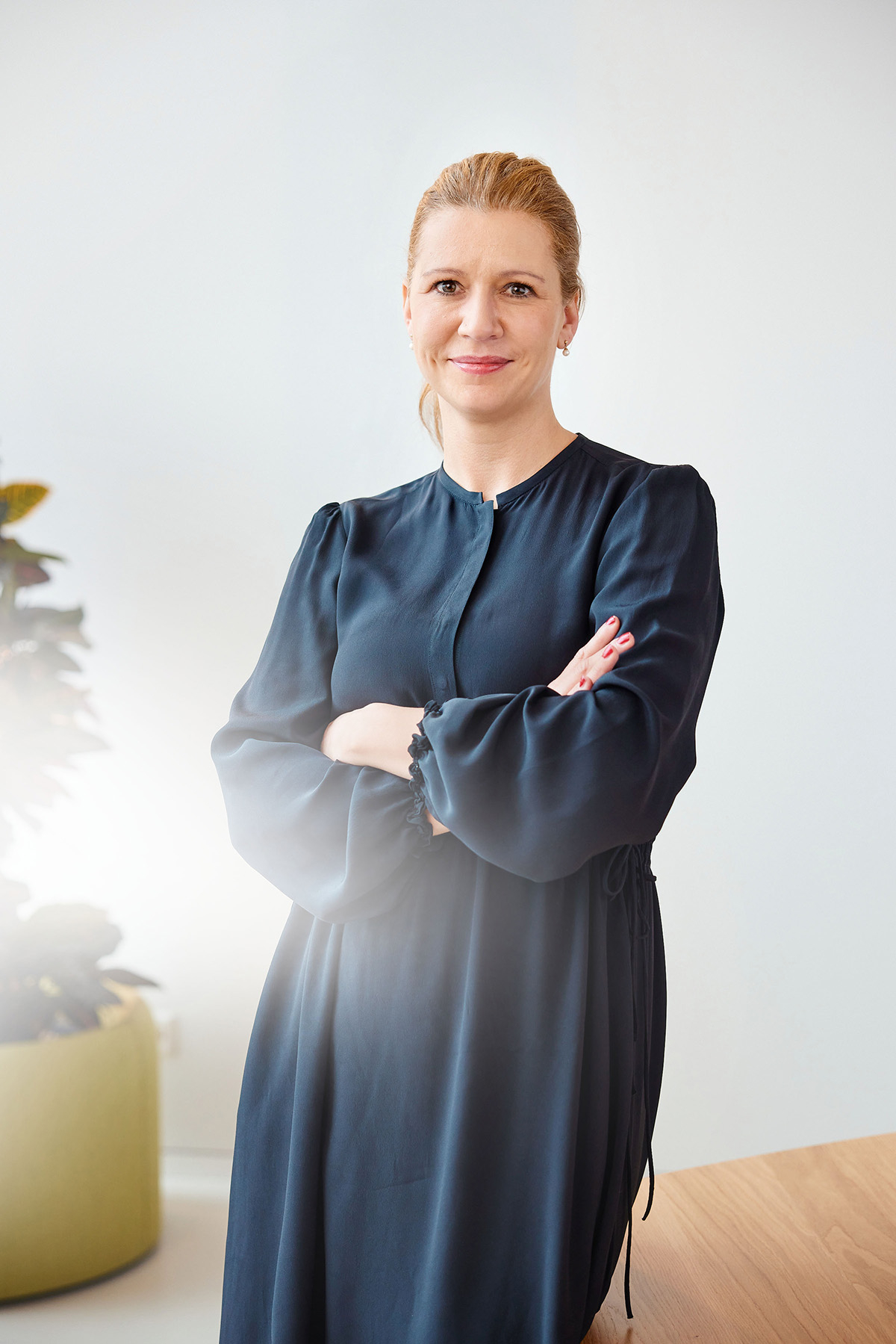
3 Questions for Julia Schempp
As corporate sustainability officer and human rights officer, Julia Schempp is responsible for the Group’s sustainability strategy.
The double materiality assessment means you now know which sustainability topics are particularly relevant for Endress+Hauser currently. Were there any surprises?
A surprising thing was the consistency with which the 37 topics were rated among the various stakeholders within Endress+Hauser, from top management to the specialists drawn from various countries, entities and functional departments. This shows our long-standing focus on sustainability topics that matter to the company and in our business.
Corporate culture emerged as the foremost topic. What’s the reason behind that?
Our corporate culture was and remains strongly influenced by the shareholder family. It ranked so highly because it is the foundation of Endress+Hauser’s sustainable success. It puts people at the center of our business and aligns with the four brand values of commitment, excellence, sustainability and friendliness. That leads to close relationships with customers, strong innovative power, good cooperation and the will to change things for the better in the long term. The analysis demonstrated yet again the importance of strengthening and nurturing this foundation.
Where do we go from here?
For each of these nine key topics we are currently investigating ways to embed them even deeper into how the company is run, and into individual processes and functional departments across the whole Group. Moving forward, we will regularly update the double materiality assessment and check other topics for relevance.

A guest house with a history
Endress+Hauser has converted the former home of company founder Georg H Endress and his wife, Alice, into a guest house. It is intended both for overnight stays by visiting company employees and members of the shareholder family, and as a seminar venue. Sustainability figured large in the choice of materials, and a photovoltaic system supplies renewable energy. Interior spaces have a bright atmosphere, with high-class finishings. This is corporate culture made visible: Georg H Endress always took pains to create a good environment for his employees.
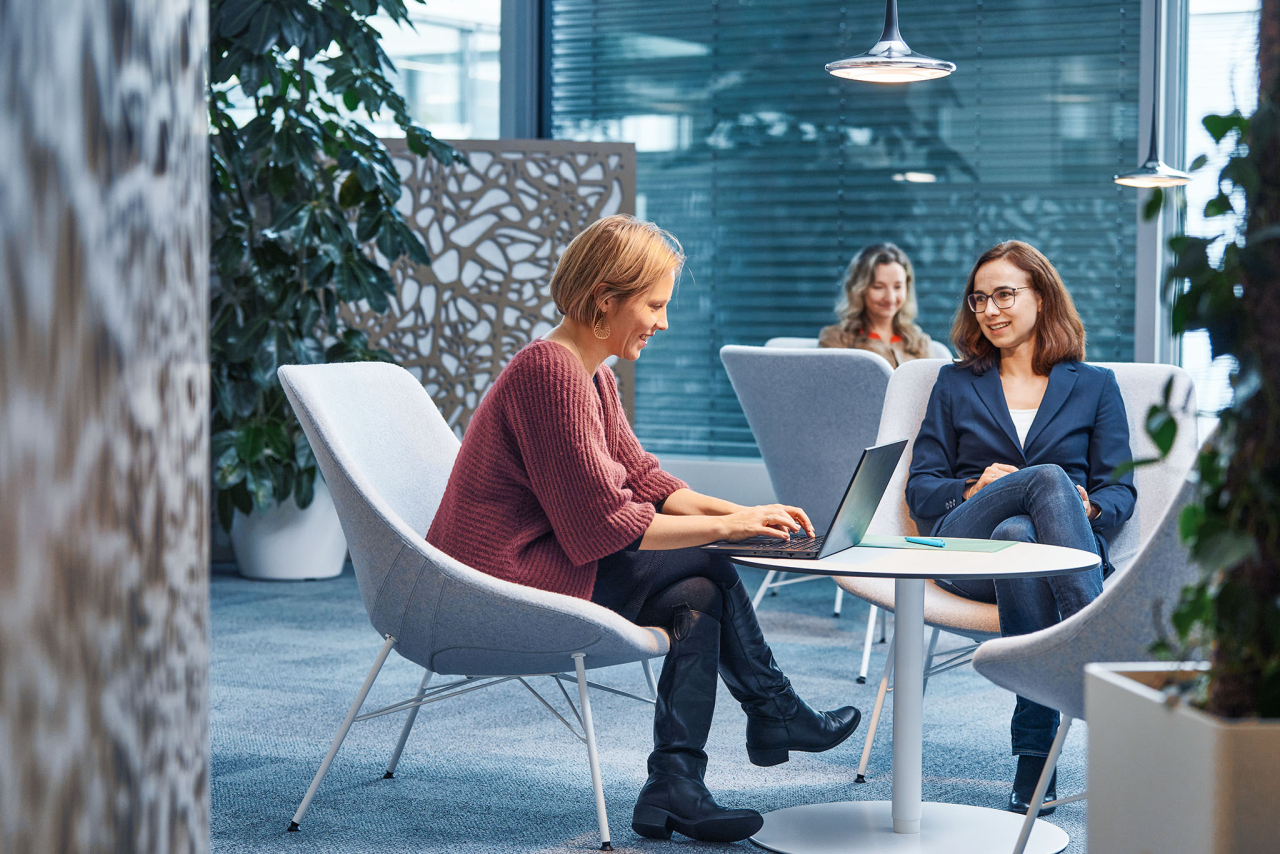
Promoting diversity
The Endress+Hauser Women’s Integrated Network (WIN) is celebrating its fifth anniversary in 2024. Since getting started, the initiative has successfully driven the advancement of women at Endress+Hauser and contributes to diversity and inclusion within the company. Group entities where topics like these have taken particular hold are already demonstrating measurable successes. By 2030, 40 percent of roles in the global workforce and 30 percent of key positions are set to be held by women. Achieving these goals will be helped by a balanced and diverse working environment.
600
native tree and shrub saplings form the basis for Wrocław’s Miyawaki forest, an initiative of the Endress+Hauser Poland team. The miniature forest covering just 200 square meters stems from the idea of Japanese botanist Akira Miyawaki. Using an efficient reforestation method, Miyawaki forests grow fast and have a high planting density – thus contributing to climate protection. This miniature green lung in the urban landscape draws carbon dioxide from the atmosphere, filters dust and pollutants, stores water and provides a habitat for birds and insects.
“The project is more than our contribution to improving quality of life for people in the city; it is also a way to promote community and environmental awareness.”
Maciej Turkiewicz,
head of sales at Endress+Hauser Poland
Published 09.10.2024, last updated 26.11.2024.
Dive into the world of the process industry through new exciting stories every month with our «changes» newsletter!
